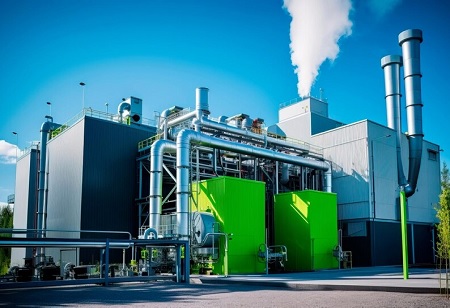
Japanese Firms Boost CO2 Export and Storage Plans in Southeast Asia

 A growing number of Japanese companies are looking to export carbon dioxide emissions to Southeast Asian countries and other regions for underground storage in efforts to combat climate change. According to recent data, there are currently over a dozen projects in progress aimed at this strategy.
A growing number of Japanese companies are looking to export carbon dioxide emissions to Southeast Asian countries and other regions for underground storage in efforts to combat climate change. According to recent data, there are currently over a dozen projects in progress aimed at this strategy.
As the Japanese government advocates for carbon capture and storage (CCS), aiming to implement the technology by 2030, local companies are increasingly pursuing initiatives to export carbon dioxide emissions for underground storage. Despite the government's push, the high costs associated with CCS technology and potential opposition from local communities pose challenges to overseas projects.
CCS technology, designed to intercept CO2 emissions from industrial facilities and prevent their release into the atmosphere, involves injecting the captured CO2 deep underground for extended storage. Notable entities such as trading house Mitsubishi Corp., leading oil distributor Eneos Corp., along with two other firms are currently exploring a project. This initiative aims to liquefy CO2 emissions originating from thermal power plants and oil factories located in the Tokyo Bay area. The plan involves shipping the liquefied CO2 to Malaysia for storage purposes.
The project anticipates collecting approximately 3 million tons of CO2 annually, with the companies targeting a launch by fiscal 2030. Chubu Electric Power Co., headquartered in Nagoya, central Japan, has initiated a feasibility study, collaborating with other firms, to explore the collection of CO2 emissions from plants and factories situated in the Port of Nagoya area. The intention is to store the captured CO2 in Indonesia.
Trading company Sumitomo Corp. has partnered with JFE Steel Corp. and additional stakeholders to undertake a feasibility study aimed at consolidating CO2 emissions from the Setouchi and Shikoku regions in western Japan. The plan involves transporting these emissions to Australia for storage. Concurrently, companies like Osaka Gas Co. are contemplating a separate initiative. They are exploring the possibility of storing CO2 emitted from domestic industrial plants within the Asia-Pacific region.
However, environmental groups have criticized Japan's push for CCS as not being an effective climate change measure, given that the technology enables the continued use of fossil fuels and the emission of greenhouse gases. Friends of the Earth Malaysia has protested to the Japanese government and others over the possible storage of CO2 in Malaysia, blasting the exportation of emissions to 'Global South' countries as 'nothing but carbon colonialism'.
"It is an unproven technology with high risk, high cost and comes with long-term liability", the group said in an open letter made public in March. "Japan must cut the emissions at the source and should not export or dump CO2 in other countries".

